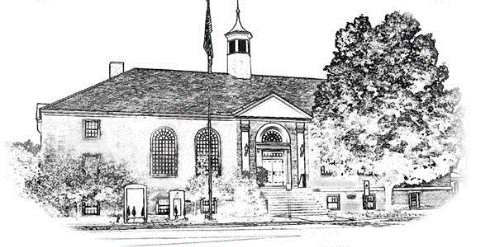Identity Theft: A Quiz for Consumers
Identity thieves use many ways of getting your personal financial information so they can make fraudulent charges or withdrawals from your accounts. Do you know how you can reduce the risk of becoming a victim of identity theft? Take this simple quiz, and see how you score-would you answer yes or no to the following:
1. When I keep my ATM cards and credit cards in my wallet, I never write my PIN (Personal Identification Number) on any of my cards.
Reason: If you lose your ATM or credit card, identity thieves or other criminals can have instant access to your bank or credit card account.
2. When I leave my house, I take with me only the ATM and credit cards I need for personal or business purchases.
Reason: If your wallet or purse is lost or stolen, and you’re carrying fewer cards, you’ll have to fewer calls to banks and credit-card companies to report the losses, and the odds of fraudulent charges in your name will be lower.
3. When I get my monthly credit-card bills, I always look carefully at the specific transactions charged to my account before I pay the bill.
Reason: Someone who gets your credit-card number and expiration date doesn’t need the actual card to charge purchases to your account. If you don’t look closely at your credit-card statement each month you might not have any recourse if fraudulent transactions go through and you don’t dispute them promptly with your credit-card company. As soon as you see unauthorized charges on your statement, contact the credit-card company immediately to report them.
4. When I get my monthly bank statements, credit-card bills, or other documents with personal financial information on them, I always shred them before putting them in the trash.
Reason: Some identity thieves aren’t shy about “dumpster diving” – literally climbing into dumpsters or rooting through trash bins to look for identifying information that someone threw out. Buying and using a shredder on your home or office is an inexpensive way to frustrate dumpster divers and protect your personal data.
5. When I get mail saying I’ve been pre-approved for a credit card, and don’t want to accept or activate that card, I always tear up or shred the pre-approval forms before putting them in the trash.
Reason: If you throw out the documents without tearing them up or shredding them, “dumpster divers” can send them back to the credit-card company, pretending to be you but saying that your address has changed. If they can use the account from a new location, you may not know the accounts being used in your name until you see it on a credit report (see below).
6. I request a copy of my credit report at least once a year.
Reason: Reviewing your credit report can help you find out if someone has opened unauthorized financial accounts, or taken out unauthorized loans, in your name. Some consumers may even qualify for a free copy of their credit reports. Contact the three major credit bureaus – Equifax (1-800-685-1111), Experian (1-888-397-3742), or Trans Union (1-800-916-8800) – to request a copy.
7. If the volume of the mail I get at home has dropped off substantially, I always check with my local post office to see if anyone has improperly filed a change-of-address card in my name.
Reason: Some identity thieves may try to take over your credit-card and bank accounts, and delay your discovery of their criminal activities, by having your mail diverted to a new address where they can go through it without your knowledge. Your local post office should have on file any change-of˙ãaddress cards, and can respond if you find that someone is improperly diverting your mail.
8. If I think that I may be a victim of identity theft, I immediately contact –
- The Federal Trade Commission to report the situation and get guidance on how to deal with it.
- The three major credit bureaus to inform them of the situation.
- My local police department to have an officer take a report.
- Any businesses where the identity thief fraudulently conducted transactions in my name.
Reason: Identity theft is a crime under federal law, and under the laws of more than 44 states, that carries serious penalties including imprisonment and fines. To help law enforcement in investigating and prosecuting identity theft, the Federal Trade Commission (FTC) maintains a national database of complaints by identity theft victims. The FTC, through a toll-free hotline (1-877-ID-THEFT), can also help you decide what steps to take in trying to remedy the situation and restore your good name and credit. Credit bureaus should also be notified so that they can flag your credit report. Local police, by taking a report and providing you with a copy, can help you show creditors that an identity thief has been conducting certain transactions in your name and without your permission.
How did you score on this quiz? If you answered even two or three as No, it means that you need to take more of the precautions described in this quiz. Remember that identity thieves, unlike robbers or fraudsters, don’t have to have any personal contact with you in order to commit their crimes. The more you do to protect your personal information, the lower the odds that you’ll become a victim of identity theft.
For more information about identity theft, go to –
- The Department of Justice’s Identity Theft Webpages, at http://www.justice.gov/criminal/fraud/websites/idtheft.html; and
- The Federal Trade Commission’s Identity Theft Webpages, at http://www.ftc.gov/bcp/edu/microsites/idtheft/.



















